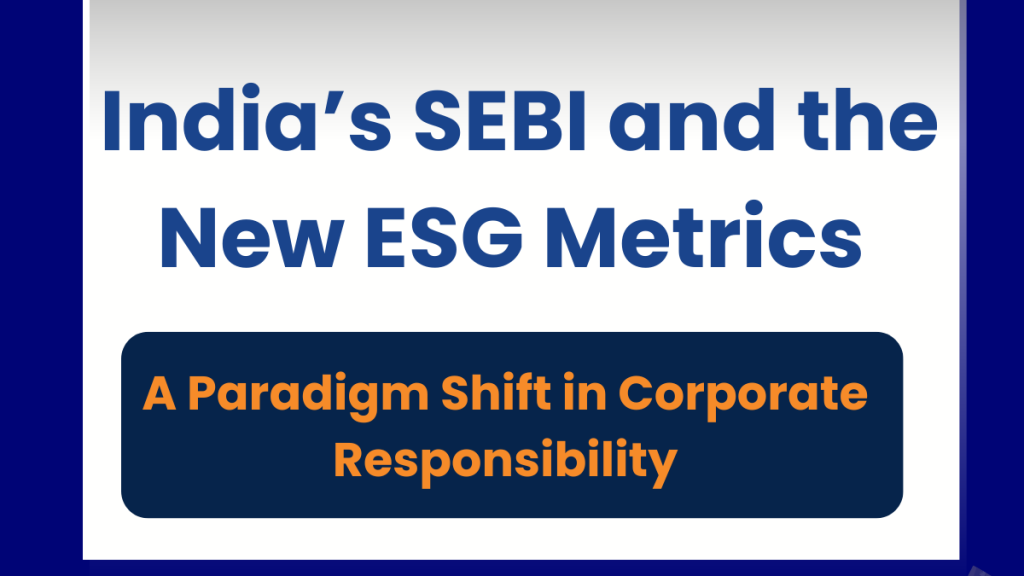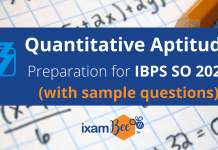Environmental, Social, and Governance (ESG) metrics have become a global focal point in corporate governance, influencing how companies assess their impact on the planet and society. In India, the Securities and Exchange Board of India (SEBI) has been instrumental in adopting new ESG metrics to ensure greater transparency and responsibility among businesses. As the world moves towards sustainable development, SEBI has introduced stricter guidelines that push companies to integrate ESG metrics into their core operations, reshaping the future of Indian corporate governance.
This shift towards incorporating ESG metrics into the corporate fabric represents a transformative moment for Indian businesses. SEBI’s new guidelines are not just about compliance but about encouraging companies to embrace a holistic approach to sustainability. By focusing on ESG factors, businesses are required to assess their environmental footprint, foster better stakeholder relationships, and uphold ethical governance standards, which ultimately strengthens long-term resilience and value creation in an increasingly competitive and conscientious global market.

What are ESG Metrics?
ESG metrics represent a set of standards for a company’s operations that socially conscious investors use to screen potential investments. The E stands for Environmental, the S for Social, and the G for Governance. These metrics encompass a wide array of factors, from carbon footprint to labor practices and boardroom diversity. Globally, ESG has emerged as a critical consideration for investors, who seek not just financial returns but also responsible corporate behavior.
Incorporating ESG metrics means that companies focus not only on profits but also on sustainability, employee welfare, and good governance. These metrics are no longer optional but have become integral to long-term business strategies, thanks to global awareness around environmental degradation, social inequalities, and governance issues.
SEBI’s Role in ESG Implementation
SEBI has always been a pivotal regulatory body in India, tasked with protecting investors and regulating the securities market. In recent years, SEBI has recognized the need for India’s corporate sector to align with global sustainability trends. To this end, SEBI has made ESG disclosures mandatory for the top 1000 listed companies, ensuring that these businesses are held accountable for their environmental, social, and governance impacts.
This significant move by SEBI places India among the global frontrunners in ESG adoption. The board has updated its Business Responsibility and Sustainability Reporting (BRSR) framework, which now includes specific guidelines on how companies should report on their ESG metrics.
SEBI’s guidelines cover various facets, such as:
- Environmental Impact: Companies are required to disclose their carbon emissions, energy usage, water management, and waste treatment processes. This aspect of ESG metrics ensures that companies are reducing their environmental footprint.
- Social Responsibility: This focuses on labor conditions, human rights, employee diversity, and community engagement. Companies must demonstrate how they treat their employees, their supply chains, and the broader community.
- Governance Standards: Corporate governance has long been a focus for SEBI, but the new ESG metrics guidelines place even more emphasis on board diversity, executive pay, and the independence of the board.
By embedding ESG metrics into its regulations, SEBI is encouraging companies to think beyond short-term profits and focus on sustainable and inclusive growth.
The Growing Importance of ESG in India
India has seen rapid industrialization over the past few decades, often at the expense of environmental degradation and social disparities. With global investors increasingly prioritizing ESG factors, Indian companies must adapt to remain competitive. ESG-compliant businesses are more likely to attract foreign investment, enhance their reputation, and mitigate regulatory risks.
For investors, ESG metrics provide an additional layer of insight into a company’s long-term viability. Companies that score well on ESG metrics tend to have lower risks associated with environmental penalties, labor strikes, and governance scandals. This makes ESG metrics a critical tool for assessing the sustainability of an investment.
Moreover, the younger generation of investors is particularly keen on putting their money in companies that reflect their values. Millennials and Generation Z are more focused on environmental stewardship and social justice, which has further accelerated the adoption of ESG metrics globally and in India.
Challenges in Implementing ESG Metrics
While SEBI has been proactive in pushing the ESG agenda, challenges remain. Many companies in India, particularly smaller enterprises, find it difficult to adopt and report on ESG metrics due to a lack of resources and expertise. There is also a cultural gap, as many traditional businesses are not accustomed to thinking in terms of sustainability.
Additionally, there is the challenge of “greenwashing,” where companies may exaggerate their commitment to environmental causes without making substantial changes. SEBI is aware of this risk and has implemented stringent guidelines to ensure that companies are genuinely adhering to ESG metrics and not merely paying lip service.
The Role of Technology in ESG Reporting
Technology is playing a important role in helping companies comply with SEBI’s ESG guidelines. From data analytics to blockchain, technological tools enable companies to track and report on their ESG metrics more efficiently. These technologies help in collecting data on energy use, emissions, and social initiatives, making it easier for companies to comply with SEBI’s stringent reporting requirements.
Moreover, technology aids in transparency, as blockchain can provide immutable records of a company’s ESG performance. This ensures that companies cannot manipulate data, further reinforcing investor confidence in ESG disclosures.
Global Context: How SEBI’s ESG Mandate Aligns with Global Standards
India is not alone in mandating ESG metrics. Globally, various regulatory bodies have made it compulsory for companies to report on their environmental, social, and governance impacts. The European Union, for example, has been a leader in the field, with strict regulations that force companies to disclose their ESG metrics.
In the United States, the Securities and Exchange Commission (SEC) is also moving toward mandatory ESG disclosures. India’s SEBI is aligning its regulatory framework with these global standards, ensuring that Indian companies remain competitive in the international market.
SEBI’s focus on ESG metrics also aligns with India’s commitment to the United Nations Sustainable Development Goals (SDGs), particularly goals related to climate action, decent work, and reduced inequalities. By ensuring that companies integrate ESG metrics into their operations, SEBI is contributing to India’s broader sustainable development agenda.
The Nine Principles of the BRSR
The Business Responsibility and Sustainability Report (BRSR) is SEBI’s framework for ensuring companies disclose their ESG metrics. It covers nine key principles that guide businesses towards sustainable and responsible conduct:
- Ethical Governance: Businesses must operate ethically, ensuring integrity and transparency.
- Safety & Well-being: Companies should ensure the safety and well-being of employees, consumers, and communities.
- Sustainability of Resources: Efficient resource usage, reducing environmental impacts, and encouraging renewable energy are emphasized.
- Respect for Stakeholders: Corporations should engage with all stakeholders, including employees, communities, suppliers, and consumers, with respect and dignity.
- Human Rights: Businesses must protect human rights across their operations and supply chains.
- Sustainable Business Practices: Companies should ensure their practices align with long-term sustainability goals.
- Engagement with Communities: A focus on supporting and benefiting local communities is critical.
- Inclusive Development: Companies must foster diversity and inclusiveness in their operations and supply chains.
- Product Responsibility: Ensuring products are safe, high-quality, and environmentally friendly.
These principles form the bedrock of SEBI’s ESG framework, pushing businesses to integrate sustainable and socially responsible practices into their operations.
What Are the Timelines for BRSR Compliance?
Compliance with the BRSR guidelines is essential for companies looking to stay ahead in terms of ESG metrics. According to SEBI, the following timeline applies:
- Mandatory Reporting for Top 1000 Companies: From FY 2022-23, SEBI mandated that the top 1000 listed companies by market capitalization must disclose their ESG metrics through the BRSR framework. These disclosures are designed to help investors and stakeholders assess companies’ sustainability efforts comprehensively.
- Voluntary for Others: While SEBI has made it mandatory for the top 1000 companies, smaller companies can voluntarily adopt the BRSR framework. The voluntary adoption signals a company’s commitment to responsible corporate behavior and can improve its reputation in the eyes of both investors and consumers.
How BRSR Aligns with ESG Metrics
SEBI’s BRSR principles closely align with global ESG metrics, covering environmental, social, and governance dimensions of corporate activity. The BRSR framework requires companies to disclose their impact on climate change, resource management, employee welfare, and governance practices. By integrating ESG metrics into their reporting, businesses enhance transparency, improve stakeholder relations, and foster sustainable growth. This alignment ensures that Indian companies meet global standards, positioning them better in the international market while promoting responsible corporate behavior:
- Improve Transparency: By requiring detailed disclosures on energy consumption, waste management, and carbon emissions, SEBI ensures companies provide comprehensive data on their environmental impact.
- Enhance Social Impact: The principles also emphasize labor rights, employee diversity, and community engagement. Through their ESG metrics, companies can demonstrate their efforts to improve social welfare, building a stronger relationship with their stakeholders.
- Strengthen Governance: SEBI mandates that companies report on governance practices, including board composition and executive compensation, ensuring that companies adhere to high governance standards.
By focusing on these key aspects, the BRSR framework goes beyond traditional financial reporting, ensuring companies address the broader ESG metrics that are increasingly demanded by both investors and regulators.
Future of ESG in India: What Lies Ahead?
With SEBI enforcing the adoption of ESG metrics, the future of corporate governance in India looks promising. Companies that fail to comply with the new guidelines risk losing investor confidence and facing regulatory penalties. On the flip side, businesses that embrace ESG metrics are likely to see long-term benefits, both in terms of financial performance and reputation.
Investors are increasingly looking for companies that are forward-thinking and responsible. By making ESG metrics a cornerstone of its regulatory framework, SEBI is ensuring that Indian businesses are prepared for a future where sustainability and social responsibility are non-negotiable.
For companies, the adoption of ESG metrics goes beyond compliance—it’s about building a resilient and future-proof business. Those that lead in ESG are not only safeguarding their own future but are also contributing to a more sustainable and equitable world.
Conclusion: SEBI and the Road Ahead
The introduction of ESG metrics by SEBI marks a significant shift in India’s corporate landscape. As investors, regulators, and consumers increasingly demand sustainable and ethical business practices, the integration of ESG metrics is no longer optional—it’s essential. SEBI’s proactive stance ensures that Indian companies are aligned with global sustainability trends, setting the stage for long-term success in a rapidly evolving market.
In the coming years, ESG metrics will play an even greater role in shaping the strategies of Indian companies. By adopting SEBI’s guidelines and embracing ESG principles, businesses can not only improve their financial performance but also make a positive impact on society and the environment. The future of corporate India is sustainable, and SEBI is leading the way.
Prepare for the SEBI Grade A and SEBI Grade A Rajbhasha exams with ixamBee’s comprehensive resources! Access SEBI exam pages for detailed information, SEBI past year papers (PYP) like SEBI Grade A Pase 1 for effective revision, and SEBI mock tests like SEBI Grade A Legal for realistic practice. Boost your preparation with ixamBee’s SEBI online courses like SEBI Grade A IT, designed to ensure success. Also, explore upcoming government exams like SSC CGL, IBPS PO, and RBI Grade B with ixamBee’s expert guidance.
At ixamBee, we specialize in providing comprehensive online courses for government exams and online courses for government jobs. Our expertly designed courses for government jobs cater to a wide range of upcoming government exams. Whether you’re preparing for specific courses for government exams or seeking general guidance, ixamBee offers the resources like Beepedia previous year papers, SSC CGL, SSC CHSL, SSC MTS and other mock tests to succeed in exams like RBI Grade B, SEBI Grade A, NABARD Grade A, RRB NTPC, SSC MTS, NIACL Assistant, and more.
Also read:
Non-Banking Financial Companies (NBFCs): All You Need to Know
SBI SO Notification and Tips: Everything You Need to Know
ECGC PO Notification 2024: Everything You Need to Know














